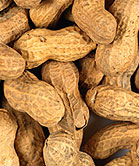Weight
Researchers found the fecal immunochemical test (FIT) is able to detect 79 percent of colorectal cancers without making people change their diets or stop taking their medications, as some other screening tests require. “It’s more user friendly for the patient,” Dr. Jeffrey Lee told Reuters Health. Lee, from the University of California, San Francisco and Kaiser Permanente Northern California Division of Research, led the analysis. Colon cancer is the second leading cause of cancer-related deaths in the U.S., according to the Centers for Disease Control and Prevention (CDC).
Governments could slow or even reverse the growing obesity epidemic if they introduced more regulation into the global market for fast foods such as burgers, chips and fizzy drinks, researchers said on Monday. A study published in the Bulletin of the World Health Organisation (WHO) suggested that if governments took firmer action, they could start to prevent people becoming overweight and obese – conditions with serious long-term consequences such as diabetes, heart diseases and cancer. “Unless governments take steps to regulate their economies, the invisible hand of the market will continue to promote obesity worldwide with disastrous consequences for future public health and economic productivity,” said Roberto De Vogli of the University of California, Davis, in the United States, who led the study. The WHO is urging governments to do more to try to prevent obesity happening in the first place, rather than risking the high human and economic costs when it does.
Celery is a vegetable belonging to the Apiaceae family. It is well known for its crunchy stalks, which people often consume as a low calorie snack.However, celery is not only a good low calorie food. There are a number of other reasons why you might want to include this vegetable in your diet.Celery is thought to be beneficial for the digestive tract and cardiovascular system.
New insight into how gut bacteria digest fibre could lead to advances in areas as diverse as health and environmentally-friendly biofuels.Fibre is an essential part of a healthful diet, but our ability to benefit from it is entirely dependent the bacteria living in our intestines.
“Cars should be designed so it’s easier to put a seatbelt on if you’re obese,” the study’s lead author, Dr. Dietrich Jehle, told Reuters Health. “It’s very important to increase seatbelt use in heavier individuals to best prevent deaths on the highways,” said Jehle, who is director of emergency services at Erie County Medical Center and vice chairman of Emergency Medicine at the State University of New York at Buffalo. Some automakers provide larger belts or extenders, Jehle said, but heavier people frequently struggle to fasten their belts, feel squeezed once strapped in and drive unbelted. An earlier study found that individuals considered morbidly obese were 56 percent more likely to die in vehicle crashes than people of normal weight.

Experimental therapy increased tolerance, but much more testing needed, doctors say
Certain probiotics could help women lose weight and keep it off, according to a recent study published in the British Journal of Nutrition by a team of researchers headed by Universite Laval Professor Angelo Tremblay.Studies have already demonstrated that the intestinal flora of obese individuals differs from that of thin people.
By Gene Emery NEW YORK (Reuters Health) – Children who are overweight when they start school are far more likely to be obese by the time they become teenagers, according to a new study of nearly 8,000 children. Overweight five-year-olds were four times more likely to be obese by age 14 than children who started kindergarten at a healthy weight. “Half of childhood obesity occurred among children who had become overweight during the preschool years,” researchers led by Solveig Cunningham of Emory University in Atlanta wrote. “If we’re just focused on improving weight when kids are adolescents, it may not have as much of an impact as focusing on the preschool-age years,” Cunningham told Reuters Health.
New research findings indicate that an early onset of dietary treatment may slow down the progression of Alzheimer’s disease. The study was conducted on mice, and the results will be published in the Journal of Nutritional Biochemistry.




